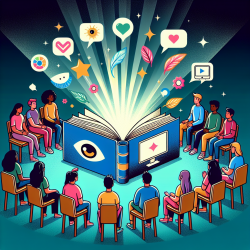Introduction
As speech-language pathologists, we are always on the lookout for data-driven strategies to enhance the social and cognitive development of children and adolescents. Recent research titled Adolescent leisure reading and its longitudinal association with prosocial behavior and social adjustment offers valuable insights into how leisure reading can impact adolescents' social behaviors and adjustments. This study, conducted by Lenhart, Richter, Appel, and Mar, explores the longitudinal effects of reading on adolescents' social skills using a robust dataset from Germany's National Educational Panel Study (NEPS).
The Study's Key Findings
The study's findings highlight the nuanced relationship between leisure reading and social outcomes. While cumulative reading in general did not predict future prosocial behavior and social adjustment, reading modern classic literature showed a positive association with these social outcomes. This suggests that the type of reading material is crucial in determining its impact on social behavior.
Implications for Practitioners
For practitioners, these findings underscore the importance of encouraging adolescents to engage with diverse reading materials, particularly modern classic literature. Here are some actionable steps practitioners can take:
- Promote Diverse Reading: Encourage students to explore various genres, with a focus on modern classic literature, which has shown positive effects on social behavior.
- Incorporate Reading into Therapy: Use reading as a tool in therapy sessions to foster empathy and social understanding. Discuss the characters' motivations and emotions to enhance social cognition.
- Collaborate with Educators: Work with teachers to integrate reading programs that emphasize literary fiction, which can support social and emotional learning.
Encouraging Further Research
While this study provides valuable insights, it also opens avenues for further research. Practitioners are encouraged to explore the following areas:
- Genre-Specific Impacts: Investigate how different genres beyond modern classics affect social behavior and adjustment.
- Longitudinal Studies: Conduct long-term studies to examine the sustained impact of reading on social skills development.
- Cross-Cultural Comparisons: Explore how cultural differences in reading habits influence social outcomes in adolescents.
Conclusion
Incorporating leisure reading, especially modern classic literature, into educational and therapeutic practices can enhance adolescents' social skills and adjustments. By promoting diverse reading habits, practitioners can play a pivotal role in shaping positive social outcomes for children. For those interested in delving deeper into the study's findings, you can access the full research paper here.










